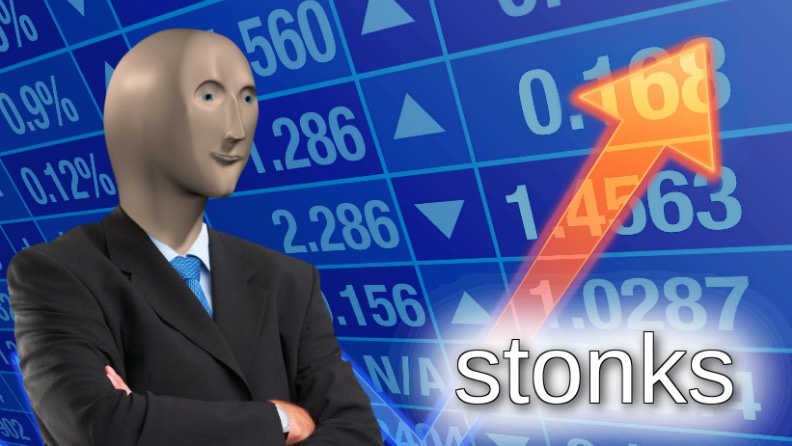The Stock Market Is Not The Economy
Those astronomical stock market gains don’t reflect the economic crisis facing most Americans
By Ethan Brown

If you were to exclusively follow the stock market’s trends, you wouldn’t know the U.S. is in the midst of an economic crisis and a deadly pandemic.
On Nov. 24, the Dow Jones Industrial Average broke 30,000 points for the first time and has mostly hovered around that mark — its highest ever — since. Generally, stocks have experienced growth across the board throughout the second half of 2020.
This stock market growth has led some politicians to claim the American economy is strong and healthy or that anti-science reopening policies were worth the uncontrolled spread of COVID-19 currently experienced by every U.S. state. From the American people’s standpoint, these politicians couldn’t be more wrong.
Wall Street’s economic outlook tells a story entirely out of line with the situation facing most Americans. As the pandemic continues, working families everywhere are missing rent, slipping into poverty and failing to find work. The success of the stock market and billionaires can’t cover up the fact that many Americans desperately need help.
Stock market ≠ economy pic.twitter.com/hEEkzlwoI4
— Public Citizen (@Public_Citizen) November 24, 2020
Unprecedented economic struggles
If the stock market were an accurate portrayal of economic prosperity, job growth wouldn’t be slowing. Yet, in December 2020, the Bureau of Labor Statistics reported only 245,000 jobs were added to the economy in November. This was substantially lower than the 610,000 jobs added in October, and the 142 million currently employed U.S. workers is still 10 million below pre-pandemic numbers.
Since the pandemic began, more than 8 million Americans have slipped into poverty. This unprecedented decline is hitting Black Americans and young people the hardest. In October, poverty rates skyrocketed to 23.4% for Black Americans and 16.8% for those ages 0-17. When a quarter of Black Americans and a sixth of minors are impoverished, stock market gains mean nothing.
30 million people in this country are at risk of eviction.
Millions of people are unemployed or underemployed from cut-back hours.
The economy is not the stock market. We are NOT doing fine. People need help in red states and blue, & our job is to help everyone. This is basic. https://t.co/M9NwZPGp2p
— Alexandria Ocasio-Cortez (@AOC) November 19, 2020
And during the holidays, when no one should have to worry about what they’ll eat the next day, Americans all over are experiencing food insecurity. Last month, thousands of cars in Dallas lined up to received more than 600,000 pounds of food from a local food bank. The foodbanks spokesperson told CNN that 40% of recipients were lined up for the first time.
The working class already struggled to get by before the pandemic as the federal minimum wage hasn’t been increased since 2009, despite inflation and overwhelming public support for a $15 minimum wage.
Who the stock market benefits: The few
The stock market, clearly, has been a poor indicator of economic success for most Americans. What it does indicate however is how the rich just keep getting richer while Americans suffer.
Only about half of Americans own stocks, but that number still doesn’t do justice to the severe wealth disparities within stock ownership. The wealthiest 10% of Americans own 84% of the total stocks in circulation. And most families who own stocks can’t access them until retirement, such as a 401(k), so market growth means little to their current economic standing.
The richest 0.1% own 17% of stocks
The richest 1% own 50% of stocks
The bottom 50% own 0.7% of stocks
Repeat after me:
The stock market is not the economy.
— Robert Reich (@RBReich) December 16, 2020
The only people who consistently, immediately benefit from rising stocks are the wealthiest in American society. The wealth of billionaires like Jeff Bezos, Bill Gates and Elon Musk grew by $845 billion during the first six months of the pandemic. This was mostly due to stocks that kept rising, in part, because of Big Tech corporations profiting off society’s current reliance on technology. Meanwhile, millions of Americans got sick, lost jobs and died.
The markets benefit a very lucky few in the American economy, and they simply can’t accurately portray the economic suffering experienced by a far larger number of people. Everyday Americans need assistance more material and immediate than rising stocks can offer.
Getting Americans the help they need
There are many things the federal government can do that the stock market cannot to save more Americans from falling into poverty. This work must begin with passing adequate economic stimulus to offset the costs of the pandemic.
In March 2020, Public Citizen wrote to congressional leadership with conditions for an economic stimulus package. Those conditions emphasize the empowerment of everyday workers. Firms that receive congressional aid must keep their workers on payroll with full pay and those workers deserve a $15 minimum wage. Additionally, Congress should reject any stimulus deal that includes corporate immunity from COVID-19 liability. This dangerous policy allows corporations to put profits over people when the economy needs the exact opposite.
Another way to improve the economic situation of everyday Americans is the cancellation of student loan debt, which currently sits at an absurd $1.67 trillion. The cancellation of this debt would put money where it is needed: In the pockets of everyday Americans. Public Citizen has joined 237 other organizations to call on President-elect Joe Biden to take the long-needed step of canceling student loan debt.
Everyday Americans need far more assistance than they’re currently receiving. A positive stock market that primarily benefits billionaires can’t make up for such widespread economic suffering, and this country’s leaders need to recognize it and take action.